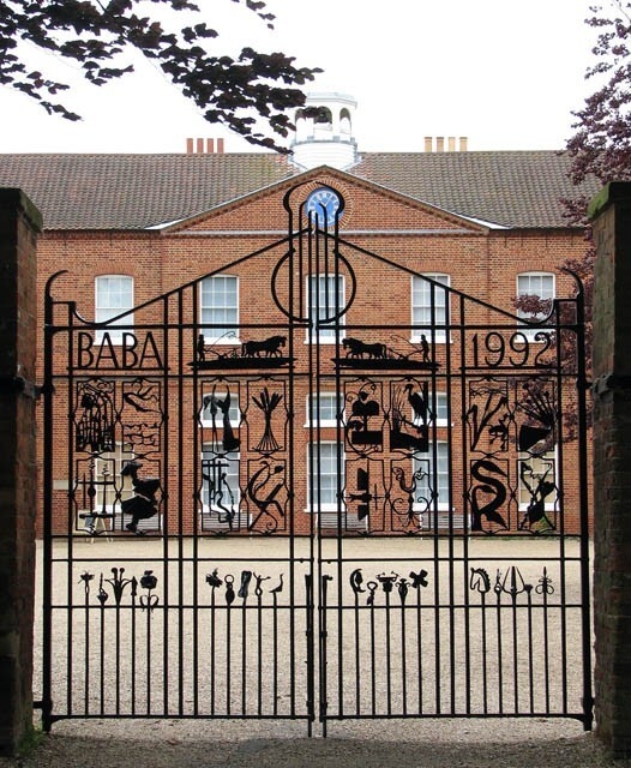Benjamin Newell
As Free UK Genealogy embarks on its new FreePRO project, our Digitiser & Admin Support, Helen Bainbridge, shares an article she first wrote for Gressenhall Farm & Workhouse in 2019. Benjamin’s story shows how probate records can help open windows into the lives of our ancestors. With FreePRO, researchers will be able to search by many more details than ever before, making it easier to discover connections, trace family stories, and add real depth to historical research.
Living in the Gressenhall Farm & Workhouse in 1881 with his unmarried mother and three of his four siblings Benjamin Newell, born in 1879, had a traumatic start to life. Not just because he was in the workhouse but because he had undergone a controversial surgical operation. At twelve weeks of age the Board of Guardians, with permission from his mother, wrote to the Poor Law Commissioners requesting permission for the Medical Officer to perform an operation on a hare lip. The Commissioners replied, after much debate, that 'the cure of hare lips, although beneficial to personal appearance is not necessary for the preservation of life'. They also advised that the operation was never quite without risk to life, with a mortality rate of just under five percent. Professional opinion was divided as to the best age to undertake such an operation, with some advising aged 4 or 5 and some early infancy. The Commissioners' reply arrived over two months after the original enquiry was made which meant the Medical Officer had already successfully performed the operation

Gressenhall Farm & Workhouse
Benjamin may not have spent his whole childhood in the workhouse, but he can be found there in 1891 whilst his mother and some other siblings are living in the nearby village of Great Dunham. At the age of fourteen, Benjamin, who would have learnt some shoemaking as part of his education in the workhouse was sent as an apprentice to Mr Abraham Bacon Matthews of Wollaston, Northamptonshire. Mr Matthews had been taking one Mitford and Launditch Union workhouse boy a year since at least from 1891 until 1901, apprenticing them as boot finishers. Benjamin remained single, living in and around Wollaston and Northampton, working as a boot finisher except during the First World War where he served in the 6th Northants Regiment. On the 10th April 1915 at the age of 37, Benjamin Newell joined the Northamptonshire Regiment at Wellingborough, Northamptonshire as a willing volunteer. Benjamin must have remained in contact with his family as his declared next-of-kin on his Short Service Testation was one of his siblings still residing in Norfolk
On 1st July 1916 Benjamin's battalion went ‘over the top’ on the first day of the infamous battle of the Somme. The 6th Northamptonshire regiment suffered the following losses on this first day of the battle as recorded in the official regimental war diary:
“The following casualties occurred on this day:
Officers wounded: Captain Neville, Franks Septimus; Lieutenant Shankster, George; 2nd Lieutenant Hamilton, Noel Crawford
Other ranks: Killed 29, Wounded 123, Missing 4, Shell Shock 1
On the 14th July 1916 the battalion was involved in an attack on an area known as Trones Wood. During this action Benjamin was shot in the left arm causing his upper arm to be badly broken near the elbow. As a result of his wounds he was sent to the Queen Mary's Military Hospital in Whalley, Lancashire, where he was admitted on the 19th July 1916. It was for his bravery during this action that Benjamin was awarded the Military Medal. In some ways Benjamin was fortunate to be wounded early in the Somme campaign because it led to him missing some of the worst fighting of the entire war.
101 days later on 27th October 1916 he was discharged from the hospital and sent to the depot at Shoreham by Sea on 1st December 1916 for recuperation and physiotherapy. He was declared fit on 2nd April 1917 with the comments:
“He had Gymnasium treatment, arm and leg drill and can now march 4 to 6 miles per day (quick march)”
Benjamin returned to duty in France on 30th April 1917. He fought in the Battle of Passchendale, and the Battle of Amiens. Benjamin's last action of the war was at the Battle of Epyhe, a minor battle that formed part of the allied 100-day offensive aimed at breaching the Hindenburg line. During this action Benjamin was wounded for the second and last time. Benjamin was repatriated to the UK and admitted to the 2nd Western General military hospital in Manchester. He was finally discharged from hospital care on the 6th June 1919.
Although Benjamin was not with his unit when the war finally ended the entry in the regimental diary simply reads: "HOSTILITIES CEASED”.
Benjamin was invalided out of the army with disabilities resulting from gunshot wounds to his left fore-arm and leg in October 1920. With none of his own family alive, Benjamin died aged 74, leaving his effects to his executors, the Boddington family (valued at £682 2s. 2d: the equivalent to £16,278 today) who he lodged with in 1939. The descendants of the Boddington family had no idea that Benjamin had links with their family other than that of being a lodger. For example the 1921 census shows that Benjamin Newell and Frederick Boddington worked for the same boot and shoe manufacturer. If they had been able to find their family name in a search of the probate records they would have been prompted to investigate the relationship more closely. However they had to wait until the researcher contacted them to find out if there were any photographs of an unknown man with a scarred hare-lip.